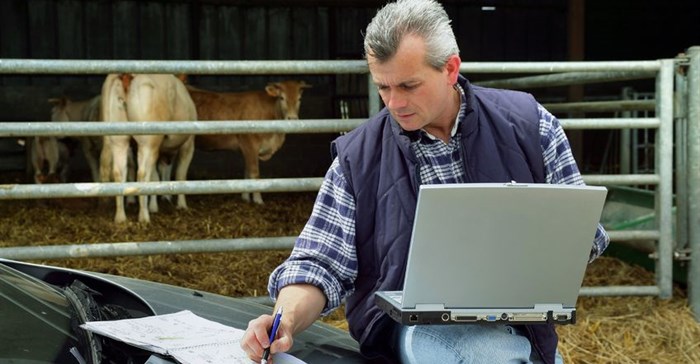Increasing productivity and control over farm operations are only some of the benefits that farmers are reaping as they hook into the Internet of Things world, thanks to being connected.
Currently, only 12% of the population has access to broadband internet, but this is changing and there is increasing demand for data so that people can enjoy the benefits of services such as e-trade, e-agriculture and e-medicine.
Yet, farmers in far-flung regions have traditionally battled to get connected to the outside world because of patchy cell phone coverage, and the impractically of laying even copper, with fibre being just a dream. However, satellite solutions, such as Vox’s YahClick, are proving to be a reliable and cost-effective way of embracing the benefits of the internet and all that the web brings.
So far, Vox has connected 4,000 farmers in remote parts of South Africa to its satellite system, with another satellite set to be launched this year. These farmers can now collaborate online and share information. The benefits of being connected are limited only by one’s imagination, and demand for access to the internet is growing at exponentially each year.
The benefits of being connected
Beyond the obvious benefits, such as being able to tap into knowledge bases on the latest farming tech and aspects that affect the Agriculture sector, farmers can also benefit from growing developments in the Internet of Things environment.
Farmers, and their staff, can also benefit from e-learning solutions as they will have access to online universities and can download learning material on a nightly, scheduled, basis when connectivity is free.
Monitoring solutions such as sensors that are accessed via a smartphone or tablet app to warn if cattle have strayed, a fence has been breached, a plague of pests is on its way, or a reservoir wall has cracked are becoming increasingly possible. Other beneficial solutions include warnings about weather conditions, such as if a fire is on the way, or online platforms that display the current spot price of wheat or beef.
Building technology into agriculture
Being connected also means farmers can stay ahead of disruptive technology, such as 3D printing and automation and build these into their business strategies as they seek to increase output to cope with an ever-growing demand for food.
Driverless cars and tractors with built-in sensors are also becoming a reality and can help farmers increase their productivity even further. Other benefits include eliminating water waste through intelligent water systems, sensors that keep track of how full a silo is, and insect traps that also provide farmers with information as to what bugs are heavily present, which they can then use to protect their crops or livestock.
The information gleaned from what the sensors feedback can then be shared with other farmers across the region and globe so that the data can be used to predict aspects such as weather patterns or forecast crop output.
Farmers can also take advantage of the technology to simplify their everyday lives by using the internet access to run tasks such as paying staff, getting bills via email and ordering feed and other products online. This will increase productivity because farmers who are hundreds of kilometers away from the nearest town don’t need to spend an entire day running errands and can instead dedicate themselves to the core task of running a farm.
The enormous value of agriculture
Farming is set to change irrevocably over the next few years as the Internet of things is increasingly felt, and app makers come up with more and more ways to stay in touch with what’s happening on the ground. By 2025, humans, animals and food will be genetically modified via low-cost gene sequencing. The implications of this include reductions in cancer, diabetes and heart disease, which will increase increases average ages and population size.
As a result, the global value of the agricultural industry is enormous, but to tap into this opportunity, farmers need to be connected. The benefits of being connected are immeasurable and vital in a world in which farming is becoming increasingly enhanced by technology as it goes through more and more challenging times. With access to the internet and apps that can increase productivity, local farming can regain the golden era of great growth while aiding the economy.



























